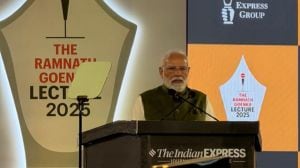Click here to follow Screen Digital on YouTube and stay updated with the latest from the world of cinema.
Subhash Ghai slams Bollywood for spending bulk of film budgets on actors’ salaries: ‘We never paid stars more than 10-15%’
Subhash Ghai recently alleged that many actors who become producers today lack an understanding of both the craft and the business of filmmaking.
 Subhash Ghai recently slammed Bollywood for neglecting technicians beyond the lead cast, particularly writers and composers. (Credit: Facebook/@subhash.ghai.official)
Subhash Ghai recently slammed Bollywood for neglecting technicians beyond the lead cast, particularly writers and composers. (Credit: Facebook/@subhash.ghai.official)While Bollywood continues to struggle to regain its footing and turn the tide in its favour, renowned filmmaker Subhash Ghai has sharply criticised the industry’s growing habit of inflating movie budgets unnecessarily and the exorbitant remunerations demanded by stars. He also alleged that many actors who become producers today lack an understanding of both the craft and the business of filmmaking. Ghai further slammed the industry for neglecting technicians beyond the lead cast, particularly writers and composers.
“When you can make a film for Rs 100 but choose to make it for Rs 1,000, remember that many people will be eager to siphon money from the remaining Rs 900. Once we had collaborators, now there is mere divisions of labour. There are multiple departments today, each with its own agenda. However, not a single person is working with the goal of completing the project within the agreed-upon budget. Earlier, our vision was to make small but good films,” Ghai shared during a conversation with Komal Nahta on his YouTube channel Game Changers.
Slamming the industry’s practice of allocating the lion’s share of a film’s budget to actors’ salaries, Subhash Ghai remarked, “We never paid stars more than 10-15 per cent of a film’s budget. Today, actors are taking home nearly 70 per cent.” He maintained, however, that this trend was not started by filmmakers but by corporate firms involved in film production. “They have to show these figures in the stock exchange and their balance sheets.”
Explaining the rationale behind floating his production company Mukta Arts, Ghai stated, “I started it to bring discipline. We made 43 films and not a single one went over budget. We also made a profit on all of them, primarily because we maintained financial discipline. Earlier, we considered films to be like God and we, the makers, were merely human. We became gods only if our films succeeded. Now, it doesn’t matter whether a movie succeeds or not — it belongs to someone else and those in the studio are simply making money among themselves.”
When asked whether actors donning the hat of producers was a positive or negative trend, Subhash Ghai recalled that legendary stars like Devika Rani, Dilip Kumar, Raj Kumar, Rajendra Kumar, Dev Anand and Raj Kapoor were also producers. “However, they understood the mathematics and grammar of filmmaking. But today, when an actor receives a script and likes it, their talent manager often says, ‘How will we do it? It’s a small-budget film. Your usual salary is Rs 50 crore and this film’s total budget is just Rs 40 crore. Let’s do one thing, become the producer.’ So, they partner with the producer, take Rs 25 crore from the film’s budget and another Rs 25 crore as a partner. This is wrong. If it’s a small movie, take a smaller fee,” he pointed out.
Ghai, known for helming films such as Karma (1986), Ram Lakhan (1989), Khalnayak (1993), Pardes (1997) and Taal (1999), also criticised production studios for prioritising stars while completely disregarding writers and other technicians. “They never ask a writer how passionate they are about their story or spend time listening to what they have to say. I directed 18 films and produced 43, yet I never told a distributor who the stars were in any of my movies,” he added.
Addressing the decline in the quality of film music, Subhash Ghai blamed makers, particularly producers and studios, for failing to push composers by providing them with enough inspiration. “You don’t give them enough inspiration to be passionate enough to understand the film. While working with Anand Bakshi, I used to narrate the entire script to him, besides explaining each situation in detail.”


- 01
- 02
- 03
- 04
- 05
































